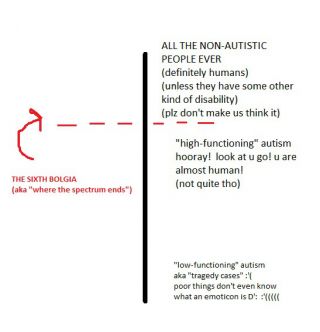
Asperger's Syndrome
Have You Had my Same Struggles with Helping Aspergers?
Learn from my struggles to be more helpful to your loved one with Aspergers.
Posted September 22, 2014

Have you ever wished you could go back in time and talk to your younger self. I sure wish I could. I’d give him all kinds of life advice, ranging from how to be a better friend, to how to date, from how to save and budget money successfully, to what kind of careers I could explore. I’d share these life lessons based on mistakes I’ve made and struggles I’ve had. But the question would be, would my younger self listen to me, the older self?
I’m writing this article for parents and spouses who want to better understand and help their friends, kids, or partners with Aspergers. I hope you’ll listen, so that you don’t have to make some of my same mistakes.
Everyone can provide better Aspergers help by learning from my struggles.
Struggle #1 -Thinking I knew, when I really didn't know
When I first started learning about Aspergers, I would often repeat what I read in textbooks or research articles. The problem was, many of those textbooks and research articles’ authors didn’t have autism. They wrote about autism through a neurotypical lens.
It’s like reading books about Chinese culture, written by Caucasian scholars. Until you and I read Chinese authors, we’re not going to fully understand Chinese culture.
Are you listening?
I began knowing how much I truly don’t know when I started reading autistic bloggers and authors. When adults with Aspergers have commented on my blog posts, they do so with a candor that teaches me how much I don’t know.
Fortunately, they’ve become my best teachers. They can teach you too, if you’re willing to listen.
Struggle #2 - Sweeping Generalizations
I've struggled, and continue to struggle with writing and speaking about Aspergers and autism.
By definition, a generalization is "a general statement or concept obtained by inference from specific cases" (definition by Google).
As Brian King has pointed out, many autistics/aspergians think with more detail and precision than many neurotypicals.
So I've had many autistic readers very frustrated with me for making generalizations that don't ring true to them.
I can understand their concerns. After all, many adults with Aspergers have had to live with Asperger myths all their lives. And many times, it's their loved ones who are buying into these myths.
Learn from my struggle.
Be humble and curious. Be honest and respectful. Listen to criticism with a desire to learn.
Don't take criticism personally. Many autistics have lived with a lifetime of not being heard or respected. Or they've had to deal with subtle and not-so-subtle discrimination. So they may express their anger when they read something that goes against their experience.
Let them teach you, and you will gain insight and understanding.
Read and listen to autism bloggers. (And make sure you check these women's blogs as well!)
When you read eye opening truths from autistics, you can then learn to be more open and willing to listen to autistics in your life, whether a child, partner, or client.
Struggle #3 - Terms, Terms, Terms!
I've learned that terms and phrases matter.
For example, in her article, Why This "High Functioning" Autistic Really Wishes You'd Shut Up About High Functioning Autistics", Academic Autistic shines a light on what high functioning autism sounds like to an autistic person.
high functioning autism mental imageHere's her description of the picture she designed -

(Description): a black vertical line, intersected about a third of the way down its length with a red, dashed line. The red line is labeled “THE SIXTH BOLGIA, aka where the spectrum ends.” Above the red line is a label reading “all the non-autistic people ever.” Just below the red line is a label reading “high-functioning autism: hooray! look at you go! you are almost human! (not quite tho).” At the bottom of the vertical black line is a label reading “low-functioning autism: aka “tragedy cases.” Poor things don’t even know what an emoticon is.”)
Can you understand,now, how powerful terms can be and how carefully we need to use them?
Here's another example. What would seem to be a subtle use of words, makes a big difference.
In her article, "Don't Call Me A Person With Autism", the writer talks about the difference between being called a "person with autism" versus identifying herself as autistic. Autistic is a term she feels is much more central to who she is, whereas calling her a "person with autism" makes her feel as though she is a person with a label.
Confession - I hit "Publish" and lost the last part of my article :(
I'll continue to update this article, but in the meantime, what are some struggles you've had as you've reached out to autistic loved ones? If you're an autistic reader, what further advice would you give to your friends and relatives, when they reach out to you?



